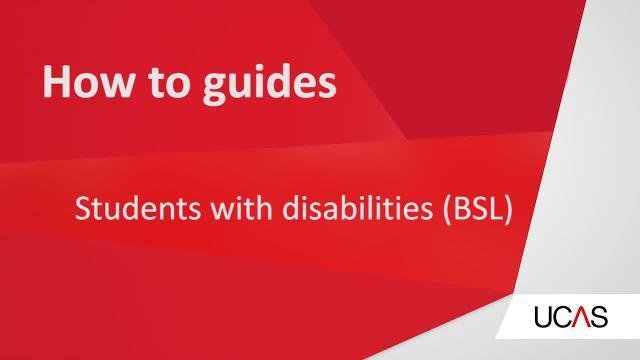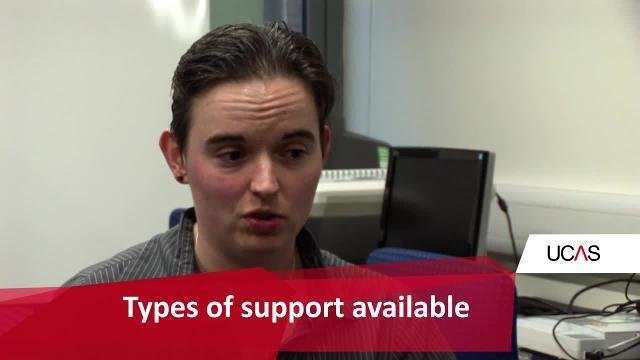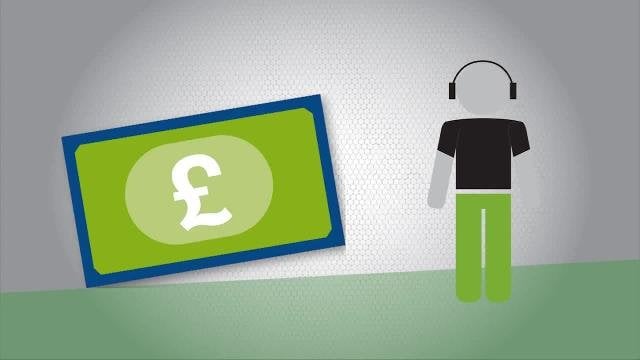Don’t forget to tell the university or college about any impairment or condition on your UCAS application – this helps them to put the support in place ready for your arrival. This information is not used to make a decision on your application and it is only shared with those involved in supporting you, or making the arrangements for your support.
Do your research
Research is vital to making your choices, and there is lots to think about. This year, the COVID-19 pandemic means universities and colleges are putting extra measures in place to ensure the health and safety of students and staff. They recognise some students will be shielding and may have reservations and questions about the decision to go to university or college. See below for some considerations to take into account when thinking about your options.
Never be put off by any assumptions about your impairment as most courses (and professions) can be made accessible with the appropriate support – the Equality Act 2010 gives employers a duty to make 'reasonable adjustments' to make sure disabled people aren't at a disadvantage. Read more about what the Equality Act 2010 means for disabled students on the Disability Rights UK website.
There are some important differences in the support you get at school or college, and what you might be able to expect in higher education. The National Association of Disability Practitioners (NADP) has created a guide to help you understand more about the differences in the language and terminology used, and the support you may be able to receive.
The university website
In most instances, the provider’s website will be your starting point. Here, you will be able to easily find information and advice for disabled students, and those with mental health conditions, long-term illnesses, and learning differences. This may include information about learning and assessment methods, support provided, and the contact details of the disability, mental health, and/or wellbeing support teams.
If you are cannot find the information you need, contact student support services at the university, who will be able to help.
Talk to course providers
To help you reach your full potential, most universities and colleges have disability support teams and mental health and wellbeing advisers. They are always happy to speak to applicants about support and answer any questions you may have – even if you choose not to apply there. This could include advice about funding (including Disabled Students’ Allowances), and about academic and lifestyle support and facilities at that university. You will find the contact details of the student support teams on the university website.
If you’re not sure what to ask when speaking to the support team, we’ve put together a detailed checklist to help you get started – read our advice on speaking to student support services.
What to consider now
1. Academic support and learning facilities
- Is there information about learning delivery and assessment methods – particularly as a result of changes made due to the COVID-19 pandemic?
- How will social distancing affect your access to non-medical helpers (e.g. note takers, sign language interpreters)?
- What accessible and inclusive online platforms are used to deliver online learning and assessment? Do all departments use the same technology?
- How will the university ensure you can access all aspects of blended learning and assessment methods (i.e. face-to-face and virtual elements)?
- Do they anticipate any impact on work placements or practical elements of the course due to the COVID-19 pandemic?
- Check lecture halls, libraries, and living accommodation are all accessible and suited to your requirements – speak to the disability support team if you anticipate any challenges.
2. Accommodation and lifestyle
- How will social distancing work on campus (e.g. in lecture theatres and classrooms)?
- If a COVID-19 resurgence means the campus needs to close again, how will that affect accommodation costs?
It is a huge change and takes a lot of getting used to, but I now love living away from home and my new-found independence.
Catherine Alexander, studying BA (Hons) English at Lancaster University
Open days and visits
Open days are a valuable way to find out about a university or college first-hand – you can tour the facilities, speak to staff and current students, and really get a feel for whether you would like to study there. Lots of universities offer virtual open days too, so if you can’t visit in person, you don’t have to miss out.
What to consider now:
- Is the university running virtual open days this year? If so, do they include information on accessibility and support?
- If you do need to see the university facilities in person, check if you can arrange a visit. The disability support team will be able to advise and, if necessary, make arrangements.
- Open days are a good opportunity to speak to current students about their experiences, but you don’t need to miss out if you can’t attend one in person – chat to students online at your university.
Visit the open days page (including virtual events)
Read our checklist for disabled students when preparing for open days and visits.
I think if you are deaf, you are much more in charge of yourself. You have to take the first steps and that can be pretty challenging because deafness no doubt causes a lack of confidence. But if you build the larger part of the bridge towards other students, work closely together with the people who want to help you, then it is worth it and I can absolutely recommend having the courage and taking the step towards university.
Fred Suter, studying BA (Hons) Modern Languages at University of Southampton
The UCAS application
The easiest way to let the university or college know about your support needs is to use the question on the UCAS application – this will ask you to select your impairment(s) or condition(s), and you can give more information in the free text box below if you wish. If you’d like to know more about sharing information about a condition or impairment in the application, read our FAQs page.
The information you give about an impairment or condition is only used by the student services team to arrange the support you may need before you arrive – this can also include help during the application journey (e.g. access for interviews, open days and auditions) – it is never used to make an academic judgement on your application.
We always recommend getting in touch with the university or college once you have accepted an offer to discuss the arrangements for your arrival and they will be happy to give you more information about the services and resources available, and answer any questions you may have.
If you decide not to share this information, that is fine – it is entirely your decision. If you change your mind, you can tell the university or college directly at any time but we recommend doing this sooner rather than later so there are no delays to getting the support ready for you.
It’s important to note that you are in full control of your support and if you decide you don’t need it, you don’t have to use it – but it’s a good idea to have it ready in place just in case your circumstances change, or you change your mind later on.
Financial support
In addition to your student finance arrangements, you may also be eligible for Disabled Students Allowances (DSAs) which help cover some of the extra study-related costs you incur due to a physical or mental health condition, or learning difference. This is a non-repayable allowance which is in addition to other student finance.
Start applying for DSAs as soon as possible – you don’t need a confirmed university place to apply.
Note: For students starting courses from September 2020, there are some changes to the way DSAs are calculated – visit the GOK.UK website for full details.
Find out more about Disabled Students' Allowances
Depending on your circumstances, you may be eligible for additional funding and support – find out more about scholarships, grants and bursaries.
Read the Disability Rights UK factsheet on funding higher education for disabled students.
Support with transition
A new start can make you feel excited and nervous – there’s a lot to think about.
Some universities and colleges offer summer schools and courses to help you manage the change, particularly if you are finding it challenging. For example, some summer schools are specifically designed to help students with anxiety or autistic spectrum conditions settle in.
It’s good to be prepared and know what to expect, so the Know Before You Go guide from Student Minds is a great resource to help you get ready for the change. You might also find their Transitions Guide useful to help you navigate university life.
Fitness to practice
In professions where you are responsible for the health and safety of other people, such as medicine or nursing, it is necessary that you meet ‘fitness to practise’ regulations. This means practitioners must demonstrate the skills and knowledge to carry out their duties safely and effectively. This is usually assessed through a questionnaire about your health, and an occupational health assessment may be required.
An impairment, mental health condition, learning difference or illness, is unlikely to affect your fitness to practise. Universities and employers have a duty to make reasonable adjustments to support disabled people under the Equality Act 2010.
Check the guidance about fitness to practise from your chosen professional course (e.g. social work, teaching, medicine, nursing) – your course provider will be able to help with this.
Further information and support
- Read our frequently asked questions about support for disabled students.
- Read the Office for Students’ briefing note on the steps universities and colleges are taking to help disabled students during the COVID-19 pandemic and beyond.
- Student Minds is the UK’s student mental health charity – visit their website for support and resources on coping with the challenges university life can bring.
- The University Mental Health Advisers Network (UMHAN) has a useful list of resources to support mental health and wellbeing, some useful information on support available at university, and how a mental health adviser can help.
- Disability Rights UK publishes a comprehensive guide to applying to higher education, and getting support – Read Into Higher Education
- Diversity and Ability is an organisation that works to improve inclusivity. Check out their guide to free resources to support disabled and neurodiverse students. We also recommend you read their DSA: Find your way page.
Helpful blog articles
Hear more from students about their own experiences of going to university with a physical or mental health condition or learning difference, and from organisations offering expert advice.
- The National Association of Disability Practitioners (NADP) works with professionals who support disabled students in post-16 education. Read their blog article, Working for a successful student journey for disabled students, which explains who to contact at your university or college, and how a disability adviser can support you through your journey to uni.
- For a student’s own experience with mental health related conditions at university, read Zoe’s story.
- Ability Net helps disabled people access and use technology, and offers free advice and resources — how they can help you and what support you may be eligible for.
- Student Minds and UMHAN have created three joint blogs: Disclosing a mental health difficulty on your UCAS application, The benefits of disclosing a mental health difficulty, and Disclosing a mental health difficulty: your rights




